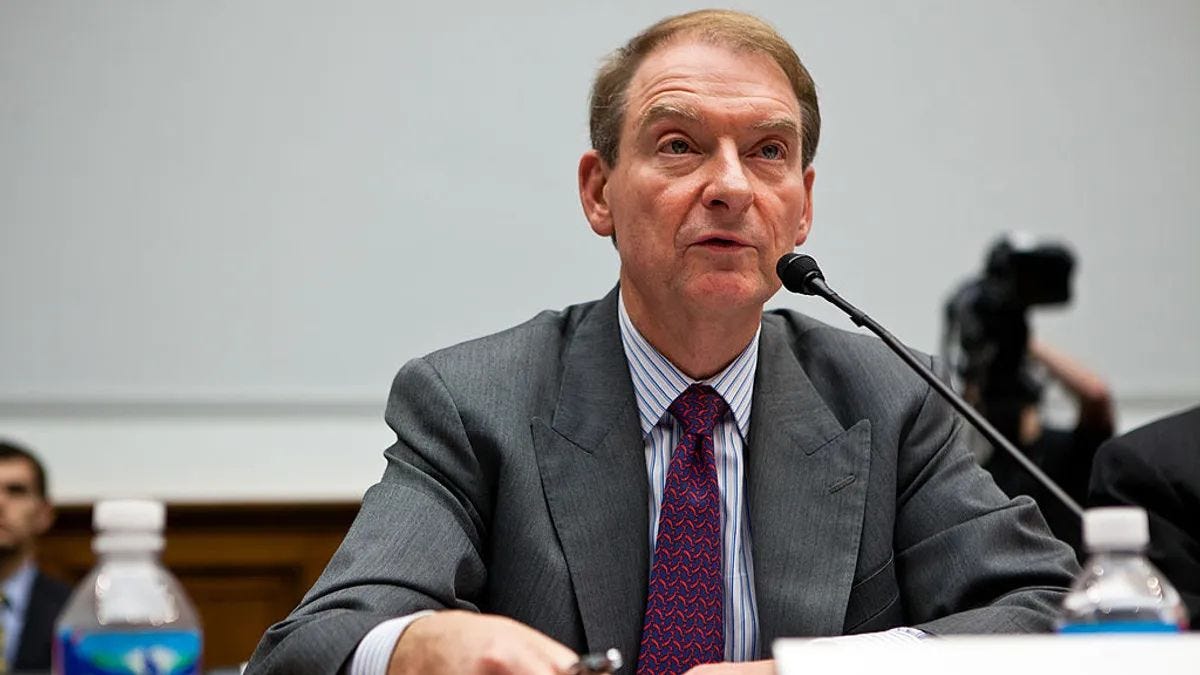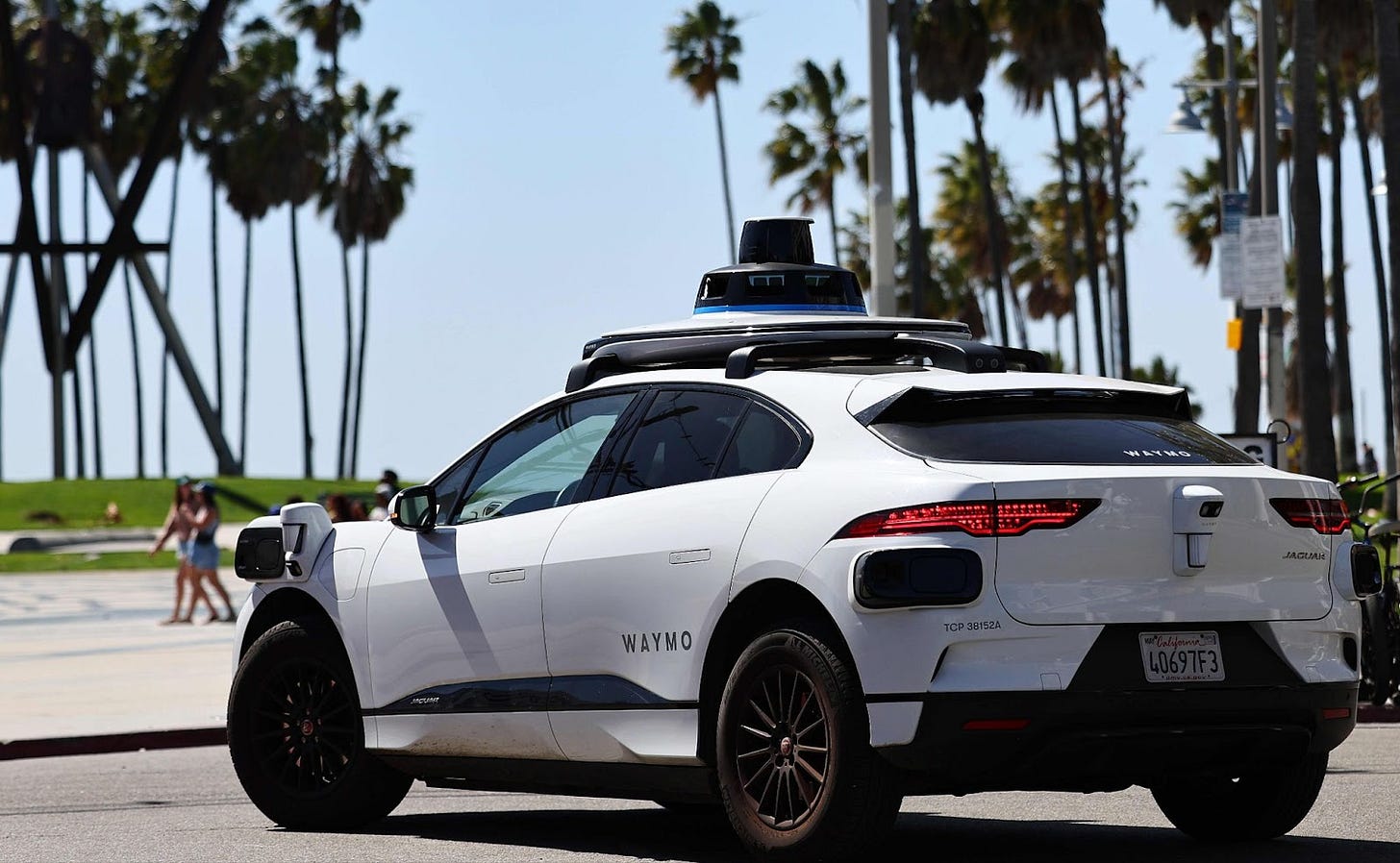Newsletter #7
Featuring stories about: US jobs, the new SEC chair, meta stock, and more!
Dear Reader,
Welcome back to the seventh edition of The Economic Literacy Initiative Newsletter. As always, you will find insights on current economic events. Thank you so much for your support last Giving Tuesday! If you were unable to support us then, we are also going to launch general donations soon, where you can support us anytime of the year. Make sure to share this online, and with friends and family. Happy reading!
US Job Creation
Image Source: Link
Summary: The November nonfarm payrolls report, which tracks U.S. job creation and unemployment, showed an increase of 227,000 jobs and a slight rise in the unemployment rate to 4.2%. This performance led markets to predict a 90% likelihood that the Federal Reserve will cut interest rates in December, meaning most investors expect the Fed to lower borrowing costs to support the economy. However, the decision has sparked debate. Critics, like economist Joseph LaVorgna, argue the Fed should pause rate cuts to avoid fueling inflation or risky financial speculation, as current wage growth (4%) and inflation measures (above 2%) remain high. Federal Reserve Chair Jerome Powell and others highlight the need to balance controlling inflation with supporting a still-strong labor market. With GDP growth expected at 3.3% for the fourth quarter, policymakers are cautiously evaluating whether further cuts are necessary.
Consumer Analysis: The nonfarm report reflects a labor market that remains resilient despite inflationary pressures. This mixed economic signal impacts consumer behavior, as wage growth of 4% suggests that workers have more spending power compared to pre-COVID periods, potentially boosting consumption. However, inflation exceeding the Federal Reserve's 2% target—coupled with high borrowing costs stemming from current interest rates may temper consumer confidence. The Federal Reserve’s potential December rate cut, aimed at reducing borrowing costs and spurring spending, could further influence consumer trends. With GDP growth projected at 3.3% for the fourth quarter, consumers may remain optimistic.
Source: CNBC
Trump Nominates Paul Atkins as SEC Chair
Image Source: Link
Summary: President-elect Donald Trump plans to nominate former SEC Commissioner Paul Atkins as the agency's head, signaling a crypto-friendly administration. Atkins, currently CEO of Patomak Global Partners, is a financial veteran known for his pro-deregulation views and criticism of the Dodd-Frank Act, a law designed to increase oversight of financial institutions after the 2008 financial crisis but often criticized for stifling economic growth. If confirmed, Atkins will succeed Gary Gensler, widely criticized in the crypto community for strict regulatory measures. Trump's announcement praised Atkins for supporting innovative capital markets and digital assets, aligning with a broader pro-crypto and deregulatory agenda.
Consumer analysis: Investors in cryptocurrencies and traditional markets are responding positively to Trump’s plan to nominate Paul Atkins, a pro-deregulation figure, as SEC head. Cryptocurrency enthusiasts are eager for lighter regulations, which could boost market growth, while traditional investors see Atkins’ stance on deregulation as a move toward more flexibility in financial markets. The market's surge following this announcement reflects consumers’ optimism that reduced regulations will lead to increased innovation and investment opportunities.
Source: CNBC
AI Optimization in Healthcare
Image Source: Link
Summary: A report from the Brooking Institution suggests that artificial intelligence (AI) could help reduce the U.S fiscal deficit by improving healthcare efficiency, potentially cutting the annual deficit by 1.5% of the GDP by 2044. AI could optimize healthcare and hospital services, reducing costs and expanding access to preventative care. All this would alleviate pressure on the government's budget. AI integration in healthcare could be difficult but the Trump administration could accelerate it’s adoption by advocating for less regulations
Consumer Analysis: AI in healthcare could significantly affect consumers by improving the efficiency and accessibility of medical services. Patients may benefit from more accurate diagnoses and personalized treatment plans. Which could lead to better health outcomes and potentially lower healthcare costs. The use of AI for preventative care could also reduce the need for more expensive treatments which could offer people more control over their health. AI’s impact on consumers will also depend on how public and private industry sectors will implement these technologies, influencing how quickly these potential benefits reach everyday users.
Source: CNBC
Meta Stock Hits All-Time High
Image Source: Link
Summary: Meta’s (facebook) shares surged 2.4% on Friday (12/6) closing at a record high, following a federal appeals court ruling that upheld a law requiring ByteDance to sell TikTok or face a U.S ban. Meta has gained 77% this year, contributing to its market cap nearing $1.6 trillion. Along with Meta, Amazon also hit an all-time high, while Apple saw a slight dip. The strong performance of tech giants lifted the NASDAQ to a record. Meta’s CEO, Zuckerberg recently dined with Donald Trump which signals interest in collaboration with the new presidential administration.
Consumer Analysis: Meta’s stock surge reflects growing investor confidence in its AI advancements. Consumers, especially younger individuals with more tech knowledge are attracted to Meta’s improving platforms such as Instagram and Threads. However, concerns around privacy may arise due to broad regulatory challenges faced in the tech industry.
Source: CNBC
Waymo Expanding Service to Miami
Image Source: Link
Summary: Waymo, the self-driving car company owned by Alphabet (Google's parent company), is expanding its robo taxi service to Miami, with plans to start testing in 2025 and offer rides through its Waymo One app in 2026. This move highlights Waymo's growing confidence in operating its autonomous vehicles in challenging weather conditions, such as rain. Waymo, which has already expanded its services to Phoenix, San Francisco, and Los Angeles, is now managing over 150,000 paid rides weekly. The company has also secured a $5.6 billion funding round to further expand its operations. Waymo is partnering with Uber to provide robo taxi rides in Austin and Atlanta, and with Moove for fleet management in Miami and Phoenix. While Waymo is leading in the autonomous vehicle market, competitors like GM's Cruise and Tesla are making strides with their own self-driving technology.
Consumer Analysis: Waymo's consumer base includes urban commuters seeking eco-friendly, convenient transportation. By expanding its robotaxi service, it taps into the growing demand for autonomous vehicles, contributing to the ride-hailing sector's economic impact. Its partnerships with Uber and Moove extend its reach, while the company’s operations in major U.S. cities generate paid rides and job opportunities.
Source: CNBC
Key Terms
Securities and Exchange Commission(SEC) - is an independent federal government regulatory agency responsible for protecting investors and maintaining fair and orderly securities markets.
Nonfarm Payrolls Report - a monthly report that estimates the net number of jobs gained in the US in the previous month, excluding those in farms, private households, and non-profit organizations.
Sources: Investopedia, Forex






